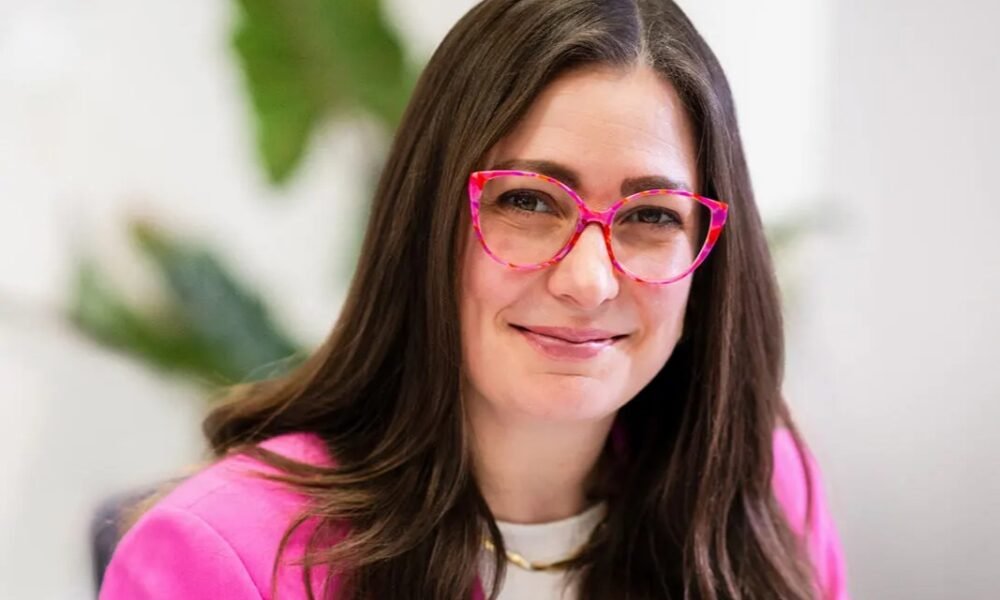IT’S never been easier to invest and grow your wealth.
People often believe you need thousands of pounds to invest – but actually, you can start with as little as £10 a month.
Rebecca Penny is an FCA regulated financial advisor who runs her own advice business, planitfinancial.co.uk.
“When your money is in the bank, there is a danger the purchasing power of it will go down due to inflation,” she says.
“When you invest, you are making your money work for you. It sounds scary and people worry about losing money in the long-term.
“But sitting in cash is always risky as your purchasing power declines over time with inflation.
“Investment risk is more about managing and being comfortable with the ups and downs of the markets.”
It’s always wise to have cash savings you can access before you start.
Keep in mind that investing is a long-term thing. You should really plan to lock away cash for 5-10 years.
Plus you need to be prepared to lose your money, as shares go up and down.
Here Rebecca shares her investment advice depending on how much cash you have.
£500
£500 is a good amount to start investing with and with a solid strategy, you could grow your wealth.
The return might not be as much as if you were starting with £20,000 but that is no reason not to start, the sooner you start investing, the sooner you can build a solid financial future.
Anyone starting to look at investing needs to firstly think about the time horizon.
We would normally only look at investing if you are happy to leave the money for at least three to five years.
You can, most of the time, access it but leaving it invested is preferable because you want to avoid taking it out when the markets are down.
You should also consider saving an emergency fund first, which is usually around three to six months of income.
This means you don’t need to dip into your investments should something happen and allows your investments to ride out market volatility.
For those starting out, there are low cost investment platforms where you can make small monthly contributions, often as little as £10 to £25 a month and this is often a good place to start.
For example, Wealthify and Nutmeg both offer ready made portfolios so you don’t have to pick your own.
A ready made portfolio is a collection of investments put together and managed for you. It usually holds a mix of assets such as shares, bonds and sometimes property or commodities.
They are designed to suit your risk level, such as cautious, balanced or adventurous.
£1,000 – £5,000
Once you build up to £1,000, ready-made portfolios are still a great option for you.
But you may also want to look at whether you want to start picking your own investments as your confidence grows. If so, platforms like Vanguard give you a DIY option as well as their own pre-packaged funds.
When you pick your own investments, you decide exactly which funds, shares or other assets to buy.
That gives you more control and flexibility but it is also more time consuming and requires research and confidence so not always for beginners who have never invested before.
TOP TIPS
BE TAX EFFICENT: As well as remembering the value of investments go up and down It’s really important to make sure that what you are doing is tax efficient so utilising stocks and shares ISAs to hold your investments is often the way to go.
You can now hold a cash and a stocks and shares ISAs at the same time, in different places but you are limited to putting a total of £20,000 per tax year into these.
Any growth however you make is tax free. If you are investing outside an ISA then you need to consider capital gains tax and things become a bit more complex/ For most people an ISA is the best option.
CHECK YOUR PENSION: If you have a workplace pension chances are you are already an investor so that is a great place to start, get hold of your paperwork, look at the fees and charges on your pension pot and consider how the value may have moved over the past few years.
If you have collected a number of pension pots over the years you may wish to consolidate them and take more of an interest in how they are invested to ensure you are on track for a comfortable
MAKE YOUR OWN CASH: Saving money in the bank. Banks use our money to lend to others and make money by charging others more to borrow than they pay in interest to account holders.
Investing means you are doing something with your money.
CHECK SAVINGS RATES: Interest on savings is taxable above a certain level if it is not in an ISA so when consider the rate of return on savings versus investing you need to take that into consideration because the rate the bank quotes may not be what you get, net, after tax.
£5,000 – £10,000
The above providers are still suitable when you have above £5,000 and it is here you will really start to see the effects of compounding, which is the growth on the growth.
The really important thing though is to make sure you don’t allow ups and downs of the market to panic you.
If you have accumulated £10,000 and the market drops a little, that will be more uncomfortable when you look at your balances. History tells us however, markets bounce back well. Patience is really key when investing more.
Consider seeking financial advice whatever level of investment you make and check the fees and charges associated with it.
We often see people using robo advisors and thinking they are free, but there is always a charge.
Fees vary dramatically. Some platforms charge a monthly fee such as interactive investor which starts from £4.99 a month while others charge a percentage to look at your funds such as Wealthify which has a platform fee of 0.6% per year.
There are also often fund fees and share trade costs on top of this so it is really important to consider these when you are picking who to look after your money.
£10,000 PLUS
With this much capital, you could start diversifying and spreading your investments across different types of things although this isn’t necessary if you aren’t comfortable doing so.
Platforms such as Trading 212, Interactive Investor and Hargreaves Lansdown offer a wide range of investment types such as ETFs which are a basket of pre-packaged investments which often track another variable such as the FTSE 100, shares in individual companies (although these carry more risk) or commodities such as gold.
You could also consider whether you want to start speaking in more detail to a Financial Adviser about things who will look not only at your investments but how the strategy behind what you are doing can help you longer term.
At this level, I would also advise people to start educating themselves more about the world of investing and make sure what they are doing is tax efficient.
You may also wish to consider your ethical position and whether you wish to exclude certain types of investments from your portfolio based on your own beliefs.
Top tips for becoming an ISA millionaire
SAVING into a stocks and shares ISA can help you build wealth faster over the long term than cash savings. Dan Coatsworth, investment analyst at savings platform AJ Bell, gives his advice…
- Start as early as you can
Time in the market is important, not just so you can ride the market ups and downs but also to let your wealth build up.
Not everyone can afford to invest the full £20,000 ISA allowance each year, particularly younger people who might be on a lower salary.
The trick is to start as early as possible with what you can afford to invest. Increase your contributions as you get older, such as when you get a pay rise.
- Maximise your contributions
Try and invest as much as you can each month once you’re sure all the essentials are covered.
Create a budget so you can pay bills in full and clear any expensive debt, such as personal loans or credit cards.
The remaining money can be used to fund your lifestyle and to top up your ISA.
- Be consistent with contributions
Feeding your account on a regular basis means you get into the habit of squirrelling money away for your future.
After a while you get accustomed to that money going into your ISA that you may not even think about alternative uses for it, such as going shopping or down the pub with your friends.
- Keep an eye on costs and charges
Costs can add up over time and eat into your returns. Try not to fiddle too much with your portfolio as trading in and out of investments incurs transaction charges.
It is important to be patient with investing, especially for someone hoping to be an ISA millionaire as the journey to build up this wealth could last for decades.
Having a diversified portfolio is good practice for any investor and essentially means keeping different types of investments to help balance out the risk.
Then if something goes wrong with one of your investments, you’ve got the rest to hopefully act as a cushion to minimise the pain.
Diversification can involve investing in different industry sectors, geographies and asset types. For example, a diversified portfolio might have exposure to shares, funds and bonds from around the world.
Companies and funds often pay dividends every three to six months.
Think of these as rewards for taking the risk of owning their shares or fund units. While it can be tempting to pocket that income stream to spend on yourself, history suggests one of the biggest contributors to investment returns is reinvesting dividends back into your account to grow wealth faster.











No Comment! Be the first one.